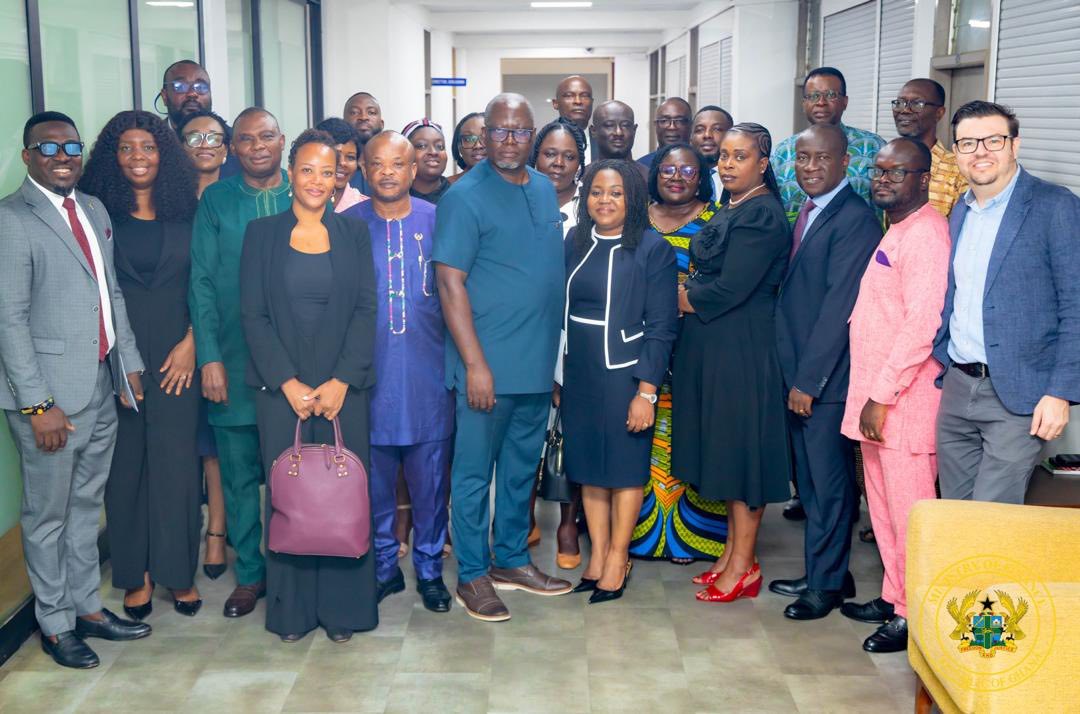Government has launched a Joint Action Plan (JAP) with key regulatory and enforcement agencies to strengthen the country’s extractive sector compliance with international Anti-Money Laundering and Counter-Terrorist Financing (AML/CFT) standards.
The move, sealed with the signing of a Joint Communiqué in Accra, signals a coordinated effort to curb illicit financial flows in the extractive sector, especially artisanal and small-scale mining.
The signing ceremony brought together major stakeholders including the Bank of Ghana, Financial Intelligence Centre, Ghana Gold Board, Minerals Commission, Ministry of Lands and Natural Resources, the Office of the Registrar of Companies, the Economic and Organised Crime Office (EOCO), the Criminal Investigation Department (CID) of the Ghana Police Service, and the Customs Division of the Ghana Revenue Authority (GRA).
Ghana’s international partners, notably the British High Commission and the UK-Ghana Gold Programme, were also represented.
Delivering the welcome remarks on behalf of the Minister for Finance, Dr. Cassiel Ato Forson, the Deputy Minister for Finance, Thomas Nyarko Ampem described the Joint Communiqué as a demonstration of Ghana’s resolve to safeguard the integrity of our financial system, strengthen governance of the extractive sector, and align fully with international AML/CFT standards.
According to him, the vulnerabilities within the sector, particularly gold, cannot be ignored given its central role in Ghana’s economy. Gold remains a leading source of foreign exchange earnings, government revenue, and livelihoods for thousands of Ghanaians. However, its prominence also makes it a target for illicit activities.
“If left unchecked, these risks undermine not only the credibility of the sector but also the stability of our broader economy,” Dr. Forson cautioned.
Deputy Minister of Finance, Thomas Nyarko-Ampem, stressed that the artisanal and small-scale gold mining sector will face intense scrutiny as Ghana heads into the 2026 Financial Action Task Force (FATF) Mutual Evaluation.
“Ghana cannot afford to be blacklisted. The costs would be too severe, higher borrowing rates, reduced investment flows, pressure on the cedi, and reputational damage. That is why this Joint Action Plan is critical,” he said.

The JAP, which emerged from a high-level roundtable in August, sets out clear responsibilities, timelines, and milestones for institutions involved in the gold value chain. It mandates regular inter-agency coordination, monthly follow-up meetings, and progress reporting to ensure accountability and results.
For the government, the endorsement of the communiqué is only the first step. “The true measure of our commitment will be in the effective implementation of the Joint Action Plan,” He later told participants. “With sustained effort and unity of purpose, I am confident that together we will succeed.”
Representatives of the partner institutions pledged their commitment to the reform agenda, noting that enhanced compliance will not only protect Ghana’s financial system but also boost investor confidence in the extractive sector.





